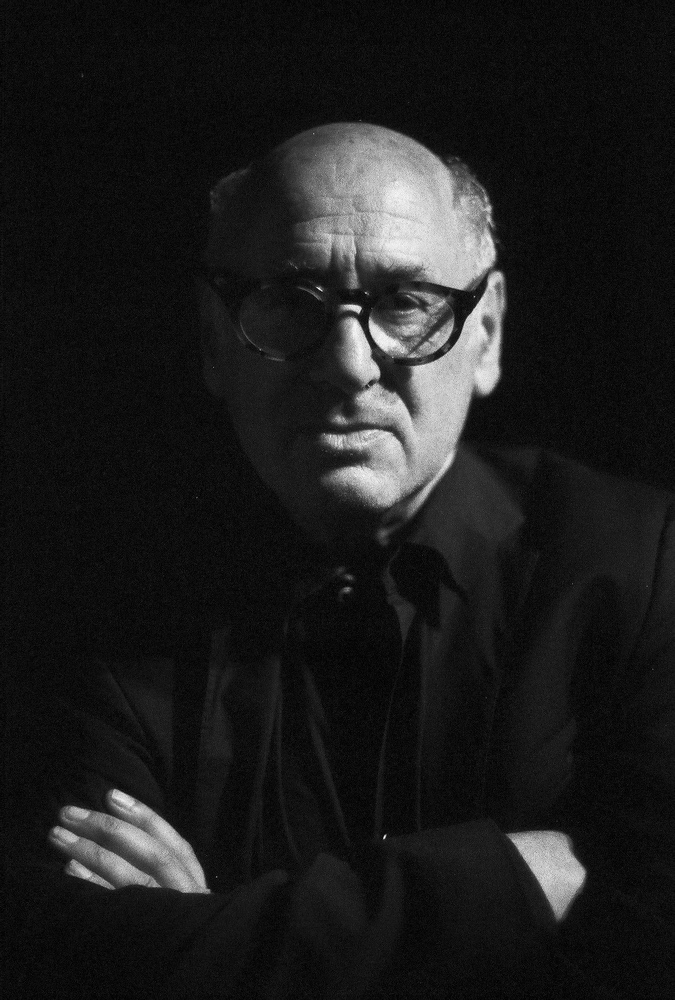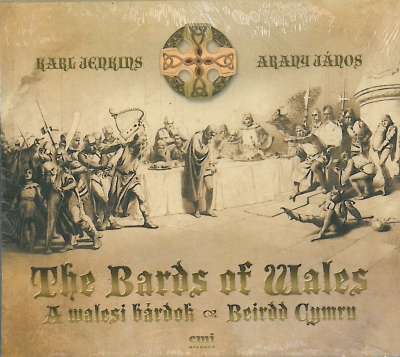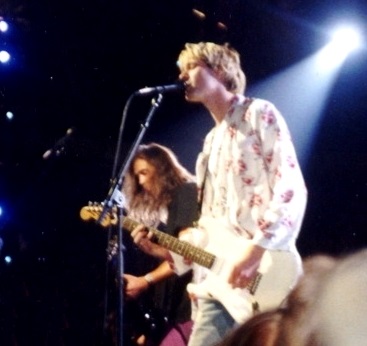|
Smith Quartet
The Smith Quartet is a UK based string quartet founded in 1988 that specializes in the performance of contemporary classical music, and is actively performing worldwide and recording . They have premiered over 100 works by composers such as Kevin Volans, Graham Fitkin, Michael Nyman, Karl Jenkins, and Sally Beamish. They have also collaborated with dance companies and musicians in other genres, notably jazz composer Django Bates and Britpop band Pulp. The quartet frequently uses amplification and live electronics in performance to expand their range of performing venues and repertoire. Their performance of Steve Reich's ''Different Trains'' was featured in the film Holocaust. Members Current members (2023) *Ian Humphries (1st violin) *Rick Koster (2nd violin) *Nic Pendlebury (viola) *Deirdre Cooper (cello) Former members *Steven Smith (violin) *Tanya Smith (cello) *Clive Hughes (violin) *Charles Mutter (violin) *Darragh Morgan Darragh Morgan (Belfast, 1974) is an Iris ... [...More Info...] [...Related Items...] OR: [Wikipedia] [Google] [Baidu] |
String Quartet
The term string quartet can refer to either a type of musical composition or a group of four people who play them. Many composers from the mid-18th century onwards wrote string quartets. The associated musical ensemble consists of two violinists, a violist, and a cellist. The string quartet was developed into its present form by composers such as Franz Xaver Richter, and Joseph Haydn, whose works in the 1750s established the ensemble as a group of four more-or-less equal partners. Since Haydn the string quartet has been considered a prestigious form; writing for four instruments with broadly similar characteristics both constrains and tests a composer. String quartet composition flourished in the Classical era, and Wolfgang Amadeus Mozart, Ludwig van Beethoven and Franz Schubert each wrote a number of them. Many Romantic and early-twentieth-century composers composed string quartets, including Felix Mendelssohn, Robert Schumann, Johannes Brahms, Antonín Dvořák, Leoš Jan� ... [...More Info...] [...Related Items...] OR: [Wikipedia] [Google] [Baidu] |
Contemporary Classical Music
Contemporary classical music is classical music composed close to the present day. At the beginning of the 21st century, it commonly referred to the post-1945 modern forms of post-tonal music after the death of Anton Webern, and included serial music, electronic music, experimental music, and minimalist music. Newer forms of music include spectral music, and post-minimalism. History Background At the beginning of the twentieth century, composers of classical music were experimenting with an increasingly dissonant pitch language, which sometimes yielded atonal pieces. Following World War I, as a backlash against what they saw as the increasingly exaggerated gestures and formlessness of late Romanticism, certain composers adopted a neoclassic style, which sought to recapture the balanced forms and clearly perceptible thematic processes of earlier styles (see also New Objectivity and Social Realism). After World War II, modernist composers sought to achieve greater levels ... [...More Info...] [...Related Items...] OR: [Wikipedia] [Google] [Baidu] |
Kevin Volans
Kevin Volans (born 26 July 1949) is a South African born Irish composer and pianist. He studied with Karlheinz Stockhausen and Mauricio Kagel in Cologne in the 1970s and later became associated with the ''Neue Einfacheit'' (New Simplicity) movement in the city. In the late 1970s he became interested in the indigenous music of his homeland and began a series of pieces which attempted to combine aspects of African and contemporary European music. Although Volans later moved away from any direct engagement with African music, certain residual elements such as interlocking rhythms, repetition and open forms are still detectable in his music since the early 1990s which takes a new direction more redolent of certain schools of abstract art. He settled in Ireland permanently in 1986 and was granted Irish citizenship in 1995. Biography During his teenage years Volans developed an interest in the music of the post-war avant garde as well as abstract painting. He pursued a Bachelor of ... [...More Info...] [...Related Items...] OR: [Wikipedia] [Google] [Baidu] |
Graham Fitkin
Graham Fitkin (born 19 April 1963) is a British composer, pianist and conductor. His compositions fall broadly into the minimalist and postminimalist genres. Described by ''The Independent'' in 1998 as "one of the most important of our younger composers",Johnson P. Classical music: Graham Fitkin Group Arnolfini, Bristol. ''Independent'' (17 March 1998) (accessed 20 June 2010) he is particularly known for his works for solo and multiple pianos, as well as for music accompanying dance. Biography Fitkin was born at in west |
Michael Nyman
Michael Laurence Nyman, Order of the British Empire, CBE (born 23 March 1944) is an English composer, pianist, libretto, librettist, musicologist, and filmmaker. He is known for numerous film soundtrack, scores (many written during his lengthy collaboration with the film director, filmmaker Peter Greenaway), and his multi-platinum The Piano (soundtrack), soundtrack album to Jane Campion's ''The Piano''. He has written a number of operas, including ''The Man Who Mistook His Wife for a Hat (opera), The Man Who Mistook His Wife for a Hat''; ''Letters, Riddles and Writs''; ''Noises, Sounds & Sweet Airs''; ''Facing Goya''; ''Man and Boy: Dada''; ''Love Counts''; and ''Sparkie: Cage and Beyond''. He has written six concerti, five string quartets, and many other chamber music, chamber works, many for his Michael Nyman Band. He is also a performing pianist. Nyman prefers to write opera over other forms of music. Early life and education Nyman was born in Stratford, London, Stratford ... [...More Info...] [...Related Items...] OR: [Wikipedia] [Google] [Baidu] |
Karl Jenkins
Sir Karl William Pamp Jenkins (born 17 February 1944) is a Welsh multi-instrumentalist and composer. His best known works include the song " Adiemus" and the ''Adiemus'' album series; '' Palladio''; ''The Armed Man''; and his ''Requiem''. Jenkins was educated in music at Cardiff University and the Royal Academy of Music: of the latter, he is a fellow and an Associate. He joined the jazz-rock band Soft Machine in 1972 and became the group's lead songwriter in 1974. Jenkins continued to work with Soft Machine up to 1984, but has not been involved with any incarnation of the group since. Jenkins has composed music for advertisement campaigns and has won the industry prize twice. Early life and education Karl Jenkins was born and raised in Penclawdd, Gower, Wales. His mother was Swedish, and his father was Welsh. Jenkins received his initial musical instruction from his father, who was the local schoolteacher, chapel organist and choirmaster. He attended Gowerton Grammar S ... [...More Info...] [...Related Items...] OR: [Wikipedia] [Google] [Baidu] |
Sally Beamish
Sarah Frances Beamish (born 26 August 1956) is a British composer and violist. Her works include chamber, vocal, choral and orchestral music. She has also worked in the field of music, theatre, film and television, as well as composing for children and for her local community. Early life and education Sarah Frances Beamish was born on 26 August 1956 in London, to William Anthony Alten Beamish and Ursula Mary Beamish (''née'' Snow). She attended the Camden School for Girls and the National Youth Orchestra. She studied viola at the Royal Northern College of Music, where she received composition lessons from Anthony Gilbert and Lennox Berkeley. She later studied in Germany at the Hochschule für Musik Detmold, with the Italian violist Bruno Giuranna. Career As a violist in the Raphael Ensemble, she recorded four discs of string sextets. However, it was as a composer that she made her mark, particularly after moving from London to Scotland. She has written a large amount of ... [...More Info...] [...Related Items...] OR: [Wikipedia] [Google] [Baidu] |
Django Bates
Django Bates (born Leon Bates, 2 October 1960) is a British jazz musician, composer, multi-instrumentalist, band leader and educator. He plays the piano, keyboards and the tenor horn. Bates has been described as "one of the most talented musicians Britain has produced... his work covers the entire spectrum of jazz, from early jazz through to bebop and free jazz to jazz-rock fusion." In additional to his jazz work, he is also a noted classical composer (writing both large- and small-scale compositions on commission), theatre composer, and has taught as a professor at various European music schools. As a leader, his bands have included Human Chain, Delightful Precipice, Quiet Nights, Powder Room Collapse Orchestra and Belovèd, and he was also a leading figure in Loose Tubes and Bill Bruford's Earthworks. Early life Bates was born in Beckenham, Kent, England, and attended Sedgehill School. While at this school, he also attended the Centre for Young Musicians in London (1971� ... [...More Info...] [...Related Items...] OR: [Wikipedia] [Google] [Baidu] |
Britpop
Britpop was a mid-1990s British-based music culture movement that emphasised Britishness. It produced brighter, catchier alternative rock, partly in reaction to the popularity of the darker lyrical themes of the US-led grunge music and to the UK's own shoegaze music scene. The movement brought British alternative rock into the mainstream and formed the backbone of a larger British popular cultural movement, Cool Britannia, which evoked the Swinging Sixties and the British guitar pop of that decade. Britpop was a media-driven focus on bands which emerged from the independent music scene of the early 1990s. Although the term was viewed as a marketing tool, and more of a cultural moment than a musical style or genre, its associated bands typically drew from the British pop music of the 1960s, glam rock and punk rock of the 1970s and indie pop of the 1980s. The most successful bands linked with Britpop were Oasis, Blur, Suede and Pulp, known as the movement's "big four", al ... [...More Info...] [...Related Items...] OR: [Wikipedia] [Google] [Baidu] |
Pulp (band)
Pulp are an English rock band formed in Sheffield in 1978. Their best-known line-up from their heyday (1992–1997) consisted of Jarvis Cocker (vocals, guitar, keyboards), Russell Senior (guitar, violin), Candida Doyle (keyboards), Nick Banks (drums, percussion), Steve Mackey (bass) and Mark Webber (guitar, keyboards). Throughout the 1980s the band struggled to find success, but gained prominence in the UK in the mid-1990s with the release of the albums '' His 'n' Hers'' in 1994 and particularly '' Different Class'' in 1995, which reached the number one spot in the UK Albums Chart. The album spawned four top ten singles, including "Common People" and "Sorted for E's & Wizz", both of which reached number two in the UK Singles Chart. Pulp's musical style during this period consisted of disco-influenced pop-rock coupled with references to British culture in their lyrics in the form of a "kitchen sink drama"-style. Cocker and the band became reluctant figureheads of the Britpop move ... [...More Info...] [...Related Items...] OR: [Wikipedia] [Google] [Baidu] |
Steve Reich
Stephen Michael Reich ( ; born October 3, 1936) is an American composer known for his contribution to the development of minimal music in the mid to late 1960s. Reich's work is marked by its use of repetitive figures, slow harmonic rhythm, and canons. Reich describes this concept in his essay, "Music as a Gradual Process", by stating, "I am interested in perceptible processes. I want to be able to hear the process happening throughout the sounding music." To do so, his music employs the technique of phase shifting, in which a phrase is slightly altered over time, in a flow that is clearly perceptible to the listener. His innovations include using tape loops to create phasing patterns, as on the early compositions ''It's Gonna Rain'' (1965) and '' Come Out'' (1966), and the use of simple, audible processes, as on ''Pendulum Music'' (1968) and ''Four Organs'' (1970). The 1978 recording ''Music for 18 Musicians'' would help entrench minimalism as a movement. Reich's work took o ... [...More Info...] [...Related Items...] OR: [Wikipedia] [Google] [Baidu] |
Different Trains
''Different Trains'' is a three- movement piece for string quartet and tape written by Steve Reich in 1988. Background During World War II, Reich made train journeys between New York and Los Angeles to visit his parents, who had separated. Years later, he pondered the fact that, as a Jew, had he been in Europe instead of the United States at that time, he might have been traveling in Holocaust trains. Steve Reich's earlier work had frequently used tape, looped and played back at different speeds. However, ''Different Trains'' was a novel experiment, using recorded speech as a source for melodies. Structure ''Different Trains'' is made up of three movements, which bear the following titles: In each part, melodies are introduced, usually by a single instrument (viola for women and cello for men), a recording of the spoken phrase from which the melody derives is played. The melody is then developed for a while, with the instruments playing along with the recording of the ph ... [...More Info...] [...Related Items...] OR: [Wikipedia] [Google] [Baidu] |






_(5993006073).jpg)
